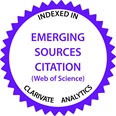Tytuł
Metodologiczne problemy badania zaufania do organizacji
Abstract
According to many management theorists and practitioners, the time for building power-based organisations has passed. Modern organisations are based on trust. The level of public trust is monitored in survey research constantly. In this article, we present four studies testing the impact of changing the question format from to
Abstrakt
Zdaniem wielu teoretyków i praktyków zarządzania minął już czas budowania organizacji opartych na władzy. Nowoczesne organizacje opierają się na zaufaniu. Poziom zaufania społecznego jest monitorowany w badaniach sondażowych nieustannie. W artykule przedstawiamy cztery badania testujące wpływ zmiany formy zadawania pytań z formatu na . Różnica ta okazała się istotnie wpływać na otrzymywane wyniki. W badaniu 1. analizowaliśmy wyniki eksperymentu wprowadzonego do standardowych badań próby reprezentatywnej przez PGSS. Celem badania 2. było rozdzielenie wprowadzonej przez PGSS podwójnej zmiany (fokus, liczba punktów na skali odpowiedzi) na dwa niezależne czynniki, którymi manipulowano w eksperymencie. W dwóch kolejnych badaniach pokazaliśmy, że odpowiedzi na pytanie są bardziej automatyczne (szybsze, oceniane przez respondentów jako łatwiejsze) niż ocena, czy dana organizacja ZASŁUGUJE NA ZAUFANIE.
Recommended Citation
Wierzbiński, J., & Burnstein, E. (2007). Methodological problems with analyzing trust in organization. Problemy Zarządzania, 5(17), 89-100. Retrieved from https://press.wz.uw.edu.pl/ems/vol5/iss17/7
First Page
89
Last Page
100
Page Count
11
Publisher
University of Warsaw







